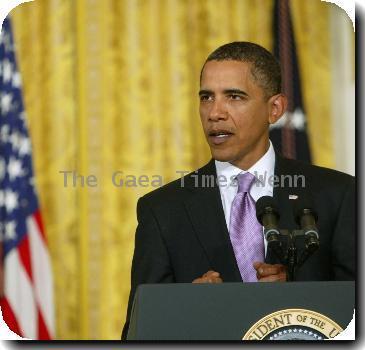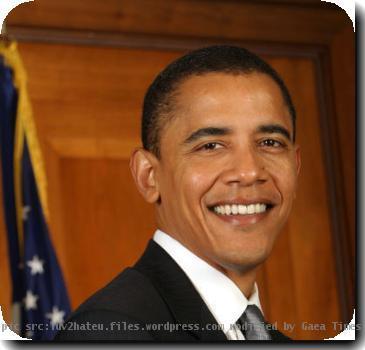Afghan president issues decree formalizing 4-month deadline to dissolve private security firms
By APTuesday, August 17, 2010
Afghan presidential decree bans security firms
KABUL, Afghanistan — Afghanistan’s president issued a decree Tuesday formalizing a four-month deadline for private security companies to disband — a move likely to dismay NATO and the U.S. military that rely on such firms to protect convoys and bases.
The U.S. and its international partners rely heavily on private security contractors — both Afghan and foreign — to guard supply convoys and protect key installations and personnel.
According to the decree, security contractors currently working in Afghanistan will have to either join the Afghan police force or cease operations by the deadline.
It does provide an exception for private security firms working inside of compounds used by international groups, including embassies, businesses and non-governmental organizations.
“They will have to stay inside of the organization’s compound and will have to be registered with the Interior Ministry,” the decree states.
All security outside of these compounds will be provided by Afghan security forces, who will also protect supply convoys for international troops, the decree says. The U.S. and its international partners are clearly concerned that the Afghan security force is not ready to take on the task.
In a statement Tuesday, U.S. Embassy spokeswoman Caitlin Hayden said the United States supported the Afghan government’s intent “to properly regulate the activities of private security companies in Afghanistan” but added that there “are questions of implementation.”
“We are concerned that any quick action to remove private security companies may have unintended consequences, including the possible delay of U.S. reconstruction and development assistance efforts,” she said. “Private security companies are currently filling a gap to allow us to deliver reconstruction and development assistance that, at the end of the day, focuses on improving the lives of the Afghan people.”
The four-month deadline was first announced Monday by Karzai’s spokesman but no details were available until the decree was issued.
Karzai pledged in his inauguration speech in November to shutter both foreign and domestic security contractors by November 2011. This decree significantly speeds up the timeline.
The government has estimated that 30,000 to 40,000 armed security contractors are working in the country.
The Afghan Interior Ministry has 52 security firms licensed, but some older contracts are still being completed by unlicensed firms, according to the U.S. military. About half of the companies are Afghan-owned.
About 37 companies are working with the U.S. government, totaling about 26,000 armed security contractors. The majority of those work for the military, though some are employed by the State Department and the U.S. Agency for International Development, according to the military.
Any security contractor currently registered with the government will have the option to sell their weapons and equipment to the police or take them outside of the country, according to the decree. Any unlicensed contractor will have their weapons and equipment seized.
The issue of private security contractors was a topic of talks that Karzai had earlier in the day with U.S. Senator John Kerry, chairman of the Senate Foreign Relations Committee, who is visiting Afghanistan, along with Gen. David Petraeus, the top commander of U.S. and NATO forces, and U.S. Ambassador Karl Eikenberry. The U.S. officials are pushing Afghan officials to battle government corruption.
A statement Tuesday by Karzai’s office said he recently sent a letter to President Barack Obama saying the war strategy needed to be reviewed. Without mentioning neighboring Pakistan, Karzai said in the letter that there is a need to focus on the “roots and sanctuaries” of terrorism outside Afghanistan instead of only fighting the war in Afghan homes and villages.
Also Tuesday, officials said bomb attacks killed three U.S. service members and three Afghan.
Two of the Americans were killed in a bombing in the east, while the third was killed in the west, NATO said. It did not provide details on where or how they were attacked.
Meanwhile, a bomb hidden on a motorbike killed two Afghan street cleaners early Tuesday in eastern Ghazni province. The bomb, which was remote-detonated, appeared to be targeting a police truck that was driving down the street in Ghazni city, said Ismail Jahangir, a provincial government spokesman. The explosion also wounded one police officer and four other civilians, he said.
In southern Kandahar province, a tribal elder and district council member was killed early Tuesday by a bomb planted in his office in the border town of Spin Boldak, according to the border police chief for the area, Gen. Razaq Khan.
The bomb had been hidden under a cushion that exploded when the elder, Zekirya, leaned against the it, Khan said.
Also, NATO reported that they killed a Taliban operative named Bilal who had ties to the network involved in last month’s killing of two U.S. sailors in central Afghanistan. NATO said it is unknown what role, if any, he played in their deaths.
Bilal was killed Monday in Logar province’s Charkh district, NATO said.
____
Associated Press writers Deb Riechmann, Rahim Faiez and Mirwais Khan contributed to this report.
(This version CORRECTS New top. Updates with Sen. Kerry visit, death of operative involved in kidnapping of NATO forces. Corrects that there are 26,000 contractors working with the U.S., instead of in all of Afghanistan. Minor edits throughout.)
Tags: Afghanistan, As-afghanistan, Asia, Barack Obama, Bombings, Central Asia, Embassies, Foreign Aid, Government Regulations, John Kerry, Kabul, Municipal Governments, Non-governmental Organizations, North America, United States



